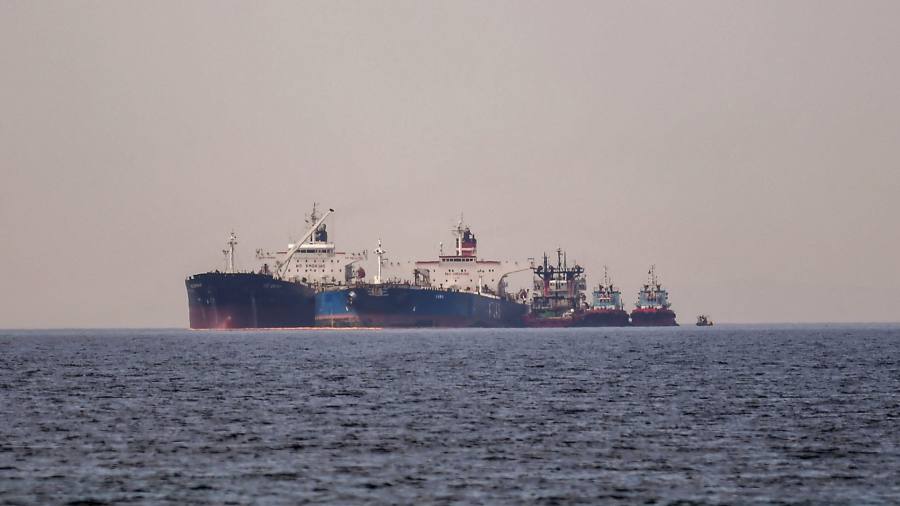A leading voice in Lloyd’s of London’s marine insurance market has called for a “Plan B” on western sanctions levelled against Russia over its war in Ukraine, amid rising concerns over unintended consequences for the global shipping sector.
Western governments have targeted Moscow with a wide range of sanctions since it launched the invasion last February, including restrictions on trading oil and goods with a potential military application. Insurers have been barred from providing cover to tankers carrying Russian oil above a $60-per-barrel price cap.
But there have been increasing warnings from the insurance sector about the knock-on effect of these sanctions, which have prompted shipowners to pull back and ushered in a “shadow fleet” of ageing ships with limited insurance cover that aim to take up the potentially lucrative business of transporting sanctioned goods.
Neil Roberts, head of marine & aviation at the Lloyd’s Market Association — a trade association which represents underwriters across the specialist market — highlighted a “growing grey fleet that operates beyond the dollar and dilutes western efforts”.
S&P Global Market Intelligence has estimated more than 400 tankers operate within the shadow fleet, with estimates of the wider group of vessels at risk of breaching sanctions ranging into the thousands.
“If the aim of sanctions is to make a state alter course, the test of success would be to ask whether the target country has changed its actions,” Roberts wrote, in the post on LinkedIn on Wednesday.
“What is unclear to industry is why policymakers believe that 20 years of Russian inculcation and perceived grievance will be materially altered through further constraints against shipping and insurance.”
Additional sanctions, he said, are “unlikely to move the strategic dial but will sink further teeth into the hand that feeds, meaning the world’s legitimate floating supply system”. The maritime sector he said, is “only so resilient” and “would clearly like to be reassured there is a Plan B”.
Last month, the chief executive of Norway’s Gard, one of the world’s biggest shipping insurers, warned the growing fleet operating outside the mainstream insurance sector, as a result of the sanctions, was a “social and environmental disaster waiting to happen”.
Major oil companies often stop using tankers after 15 years of wear and tear. But industry figures fear that an increasing number of ships over this age are being acquired by inexperienced shipowners to transport Russian crude over long distances, increasing the risk of accidents that could lead to oil spills or even crew fatalities.
Lloyd’s of London, the corporation that runs the insurance market, has worked with governments and regulators to implement western sanctions that it has described as “the best weapon at our disposal” in pursuing a swift end to the war.
The centuries-old market has been at the heart of the marine insurance sector since its inception. Including it within western insurance sanctions has been viewed by policymakers as critical to their effectiveness.
Read the full article here




